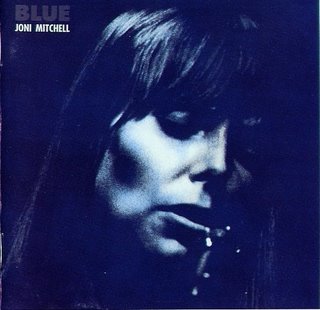 Paul Simon
Paul Simon(1972)
Paul Simon, the eponymous solo debut by Simon & Garfunkel mastermind Paul Simon (I say all this like you don't know who he is... *shakes head*), is the only album I can credit with having saved my life. In December and January of this past winter, Paul Simon preserved my sanity. I'll spare you the details and simply note that I was in a bad place. I was in a very, very bad relationship, and I was alone in Chicago for five weeks. There were three-or-four day stretches when I would not see even the hall outside my apartment door. These were not high times. I wrote an unprecedented amount of material in those five weeks; between the solitude and the ever-shifting emotional space I occupied, it was a prolific period, certainly. I threw myself as fully into my work as I ever have, and that was very rewarding, but the writing I did in that period was intensely personal, and required me to stare straight in the face of the very things which were tearing me apart inside. The only thing that brought me back at the end of each day, and every day ended with me frustrated, exhausted, and unable to stop thinking, was listening to Paul Simon as I fell asleep, night after night.
I often listened to it during the day, as well. I listened to it three or four times a day, on occasion, though I usually did my best to restrict the habit to once a night, when it was a balm, a salve to my sanity. During the day, it simply kept me from falling apart entirely. Any time I felt myself losing what composure I had, I put it on, and it would stop the bleeding, if only for a few hours. But, at night, laying in bed, with nothing to focus on but breathing and the music, it took on a healing power I've never found in any other music. Everything was alright, everything would work out, and I was going to survive this.
To be fair, I'd never been in as intense a situation as I was at that time, and, if Paul Simon hadn't been there, I'm sure I would have found something else. But it was there, and it was all I needed. I didn't have much else in the way of input during that time; television, movies, and all other music allowed my mind to wander, and I found it hard to focus. Books weren't even close to an option. I couldn't focus for a sentence. When I wasn't writing, I was probably listening to Paul Simon.
Not surprisingly, once that period was over, I didn't listen to it much. It wasn't a conscious choice, but there's no sense in arguing that I wouldn't have found the emotions attached to it overwhelming and unpleasant. It became a sort of talisman, a box in which I poured everything negative from that time, and I left it on the shelf, afraid to touch it, to disturb what was inside. I remembered the important role it played, but the music was lost in the shuffle. So to speak.
A little over a week ago, due to circumstances in my life which have brought the tail end of that chapter to a close, I listened to Paul Simon for the first time in eight months. Every note of it was still familiar to me, I could sing every word; it was almost as if the album had never left, but, this time, it wasn't serving a function. It was there to be enjoyed, not to be relied on. And I discovered, rediscovered, how truly amazing a piece of work it really is.
On a technical level, I'm only now really appreciating all there is to appreciate about it. It was a blanket before. Now it's a tapestry. There is a remarkable, subtle variety to the songs here; it was meant to be appreciated as a whole, and that shows, as the songs are all dissimilar yet still familiar with one another. Paul Simon's voice is calming, weary, withdrawn even; he wrote the album in the aftermath of a divorce, and the sadness, hurt, resolve, and real, true pain are all found throughout these songs, without ever being reduced to a cliche. He manages to dissect the pains of dissolved love with a combination of empathy and intelligence which many strive for, but almost none achieve.
I bought the LP today, as I've only ever heard it as mp3s. The fullness of the sound, and the details I could hear, as this thing which was so familiar and important to me took on a whole new beauty and quality, a whole new existence, almost brought me to tears. I can't recommend it enough.



